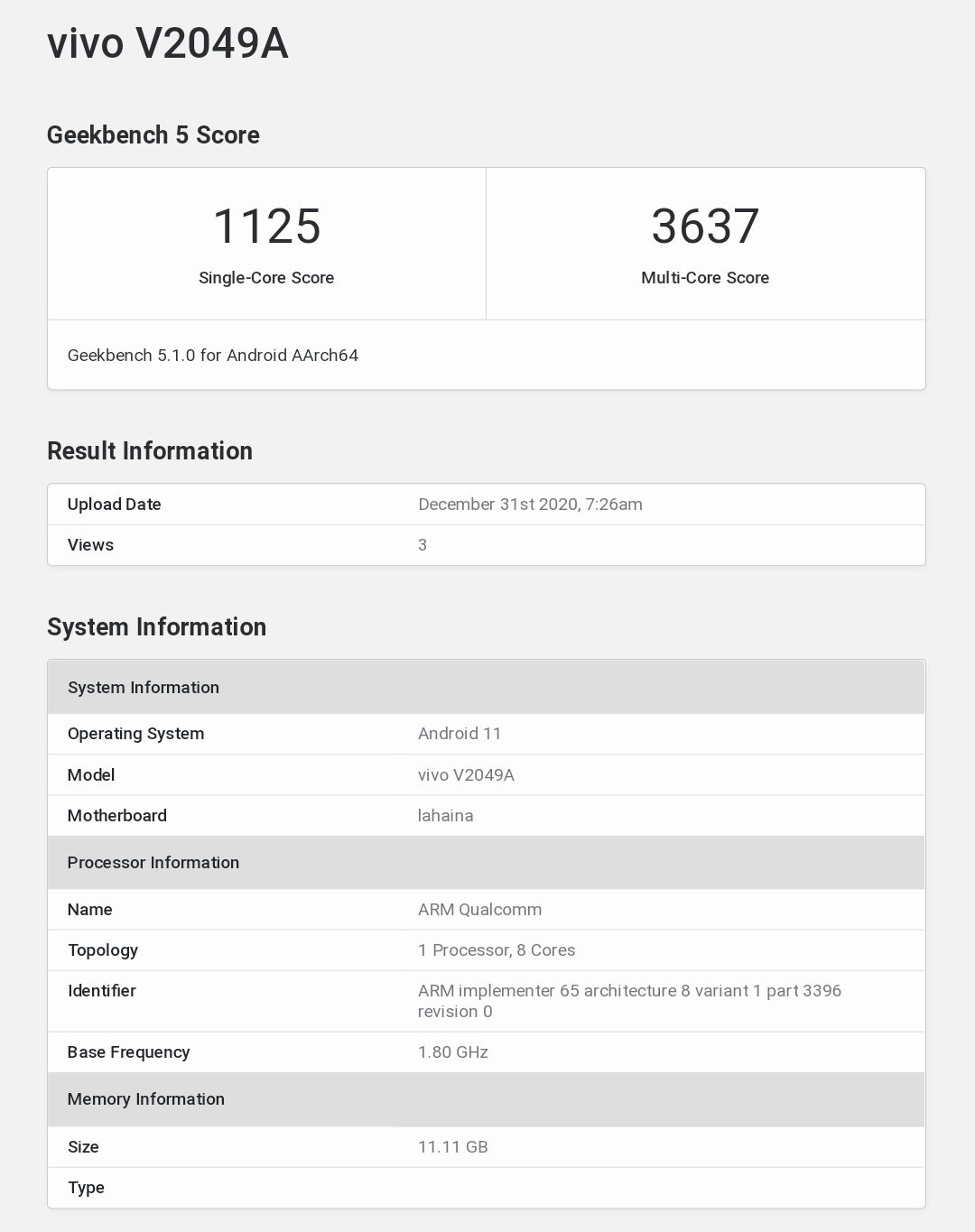iQOO 7 with SD888 and 12GB RAM spotted at Geekbench
iQOO is all set to launch the iQOO 7 flagship on Jan. 11 in China. Recent reports have revealed that its model number is V2049A. Earlier this week, it surfaced at AnTuTu benchmarks with an amazing score of 752,935. The 12 GB RAM variant of the iQOO 7 was benchmarked on AnTuTu. The same variant has now been surfaced on the Geekbench benchmarking platform.
The Geekbench listing shows that the Snapdragon 888 SoC powered iQOO 7 has scored 1125 and 3637 in the single-core and multi-core tests of Geekbench 5, respectively. The scores are in line with other Geekbench listings of other SD888 phones like the Galaxy S21, Xiaomi Mi 11, alleged ASUS ROG Phone 4, and Vivo X60 Pro+.

Editor’s Pick: Vivo Y20A with Snapdragon 439, 13MP triple cameras, and 5,000mAh battery launched
Rumors surrounding the iQOO 7 have revealed that it will be sporting a 6.56-inch AMOLED screen with a punch-hole positioned at its top-center. The display will come with features like an FHD+ resolution, a 120Hz refresh rate, and an in-screen fingerprint reader.
The Snapdragon 888 5G mobile platform is coupled with enhanced LPPDR5 and UFS 3.1 storage on the device. It will come preinstalled with Android 11 OS and support for 120W fast charging. However, the exact size of its battery is not known yet. The rear shell of the phone has a triple camera system. It is expected to arrive with an OIS enabled 48-megapixel primary camera. Lastly, the company will be also selling a special BMW edition of the smartphone.
UP NEXT: Vivo Y20 (2021) with Helio P35, 13MP triple cameras, and 5,000mAh battery goes official
ALWAYS BE THE FIRST TO KNOW – FOLLOW US!
The post iQOO 7 with SD888 and 12GB RAM spotted at Geekbench appeared first on Seogoog.com.
source https://seogoog.com/iqoo-7-with-sd888-and-12gb-ram-spotted-at-geekbench/
Comments
Post a Comment